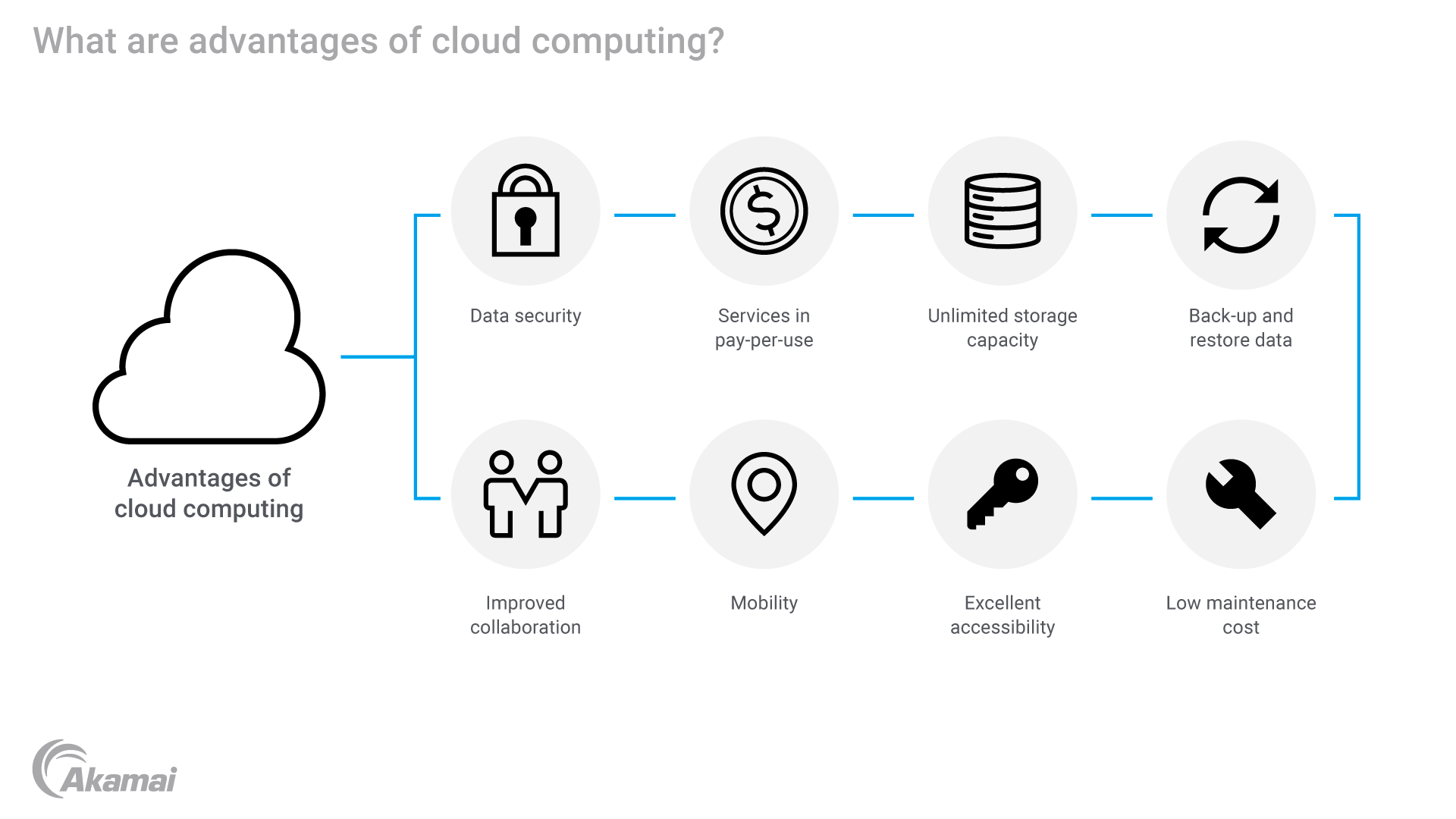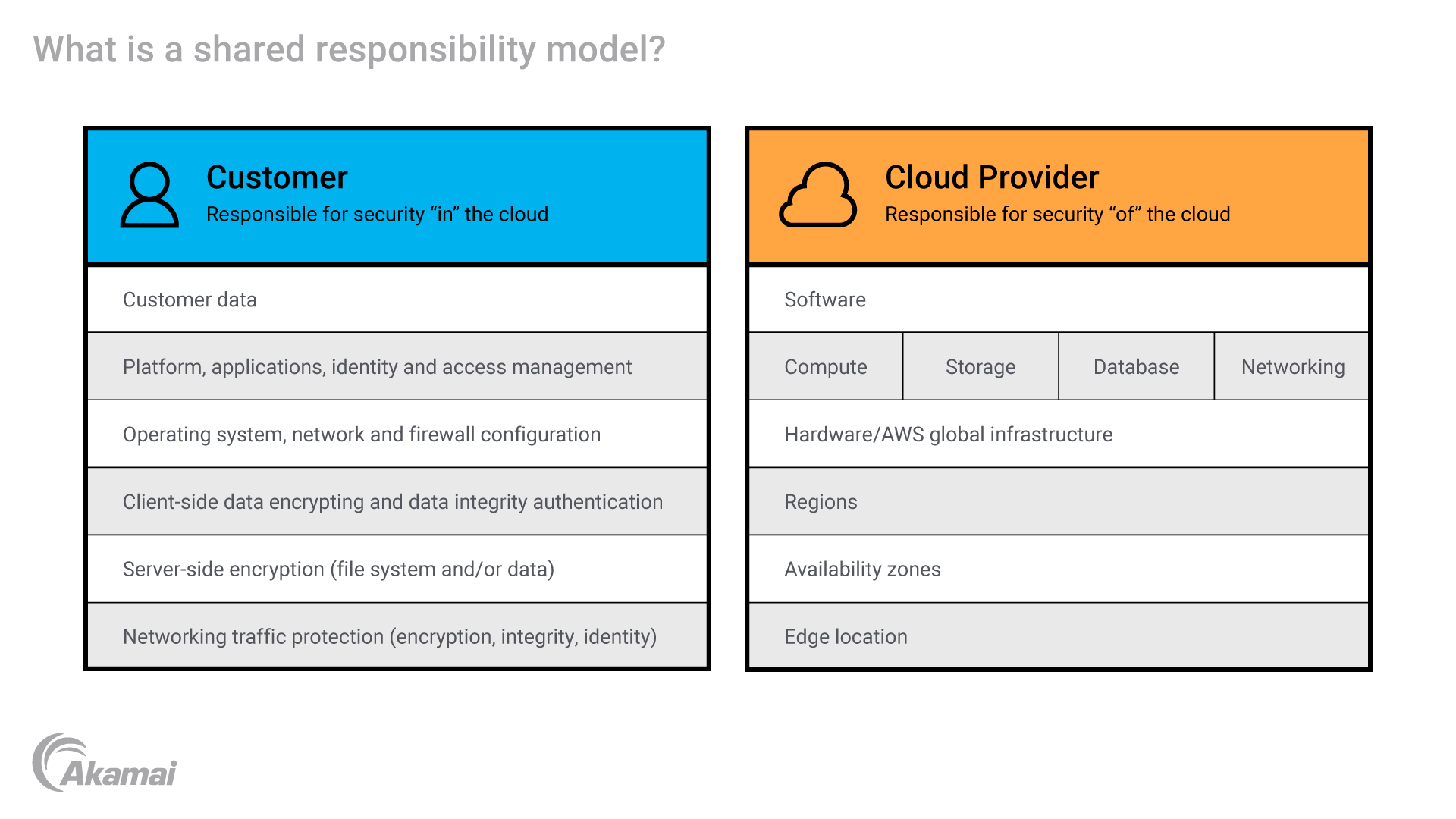Cloud storage is a service that allows you to save data on remote servers accessed from the internet. It enables you to store, manage, and retrieve your data from anywhere, using any device with internet access, without the need to carry physical storage devices or maintain data storage infrastructure on your premises.
Cloud computing is constantly changing. Staying on top of the latest practices and technologies is important to remain competitive and equip you with the knowledge to optimize your cloud infrastructure.
What is cloud computing?
Cloud computing is a model in which a third party enables you to deliver on-demand computing resources over the internet. This applies whether we’re talking about private cloud, public cloud, or hybrid cloud, as well as multicloud. Instead of managing hardware and software infrastructure, you can access computing resources like virtual machines and storage via a cloud provider.
Before cloud computing, organizations directly invested in expensive hardware and software, and maintained their on-premises infrastructure or worked directly with data centers to colocate their infrastructure. As a result of costly up-front investments and limited scalability, demand increased for a solution that was more affordable, scalable, and easier to manage. Cloud computing offers a range of solutions that fit the bill — from simple, on-demand servers that are quick to provision to third-party–managed platforms that include enterprise-ready services.
Cloud computing is now leveraged by developers, growing businesses, and large corporations — for good reason.
Let’s dive into the benefits of cloud computing and why people use it in the first place.
Benefits
According to McAfee’s Cloud Adoption and Risk Report, 87% of companies can accelerate and scale their businesses because of their use of the various types of cloud computing services. Whether you can serve more customers because you can easily scale in the cloud, or provide more lucrative services because your cloud provider upgrades and maintains their software and hardware, the cloud helps businesses provide the best to customers.
Let’s take a closer look at the business benefits of the cloud environment:
- Cost efficiency
- Agility
- Scalability
- Reliability
- Security
Cost efficiency
With cloud computing, organizations can easily provision the exact resources they need, when they need them. This means that businesses don’t need to invest in expensive hardware, and they can easily scale their resources up or down.
Cloud service providers are responsible for maintaining and upgrading the cloud storage data centers that house client applications and data, which saves organizations the ongoing expenses of purchasing, maintaining, and housing IT infrastructure.
Agility
You can deploy highly customized virtual instances in minutes, allowing organizations to focus on their business or customer needs rather than the infrastructure required to support them. This agility makes experimenting with new ideas and features easier while quickly testing them in a development environment to ensure stability and shipping to production.
Scalability
Scalability and elasticity enable you to allocate resources to meet fluctuating demand dynamically, especially for service-based models including IaaS, PaaS, and SaaS. The cloud offers a pay-as-you-go pricing model. You only pay for resources as you consume them. Adding or replacing resources, like changing compute plan sizes or adding storage capacity, is also easy — allowing businesses to scale as they grow.
Reliability
Reliability and business continuity significantly benefit from cloud computing. If one aspect of the infrastructure fails, multiple operational links ensure that the network is working to the greatest extent possible.
Cloud service providers focus entirely on maintaining and improving their cloud infrastructure, resulting in data centers with the highest-performing compute, storage, and network resources.
Most cloud service providers offer fault tolerance and automatic data backups, so you can rest easy knowing that you can roll back in case of a bad code change or incident. This is especially important in today’s business environment, where data is critical to success, and downtime can have a significant impact on the bottom line.
Security
Cloud providers focus their efforts on maintaining and improving their cloud infrastructure, resulting in data centers with the most secure network and infrastructure, which helps businesses keep their customer and application data safe. In fact, McAfee reports that 52% of companies experience improved security when using cloud services over traditional on-premises data centers.
However, there are multiple security layers, and your cloud provider is just one. It is also up to you to perform due diligence through both infrastructure and software to ensure they are secure.
This is called a shared responsibility model.
A shared responsibility model relieves you of some security maintenance, since the cloud provider is responsible for the cloud infrastructure and the security of its hardware and software components. This model requires you, however, to be responsible for the security in the cloud, including the operating system (OS), apps, firewalls and other cloud security, and customer data.
Frequently Asked Questions (FAQ)
Cloud computing operates on the principle of allowing users to access and store data, applications, and computing resources over the internet, rather than on personal computers or local servers. This means you can use software, store data, or run your business using resources hosted on remote servers that you access online.
Adopting cloud computing can lead to significant changes in IT budgets. It often reduces costs related to purchasing, maintaining, and upgrading physical hardware since these responsibilities shift to the cloud service provider. It can also transform capital expenses (CapEx) into operational expenses (OpEx), providing more flexibility and potentially lowering upfront costs.
Benefits of cloud computing include cost savings, scalability (the ability to easily increase or decrease resources), flexibility (access your data and applications from anywhere), improved collaboration (teams can work together more easily), and automatic updates (software updates can be deployed by the provider without customer intervention).
There are three main types of cloud computing services:
- Infrastructure as a service (IaaS): Provides virtualized computing resources over the internet, such as servers, storage, and networking.
- Platform as a service (PaaS): Offers hardware and software tools over the internet, typically for application development.
- Software as a service (SaaS): Delivers software applications over the internet, on a subscription basis.
Cloud computing services are delivered over the internet. Service providers manage data centers equipped with large amounts of storage and computing power. Users can access services and resources on demand through web interfaces or APIs, often on a pay-as-you-go basis. This means you can use as much or as little of the service as you need, scaling your usage up or down based on your requirements, without worrying about the underlying infrastructure.
Why customers choose Akamai
Akamai is the cybersecurity and cloud computing company that powers and protects business online. Our market-leading security solutions, superior threat intelligence, and global operations team provide defense in depth to safeguard enterprise data and applications everywhere. Akamai’s full-stack cloud computing solutions deliver performance and affordability on the world’s most distributed platform. Global enterprises trust Akamai to provide the industry-leading reliability, scale, and expertise they need to grow their business with confidence.



